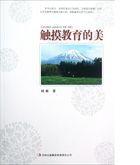The fact that value is the expression of the social labour contained in the privately produced products itself creates the possibility of a difference arising between this social labour and the private labour contained in these same products. If therefore a private producer continues to produce in the old way, while the social mode of production develops this difference will become palpably evident to him. The same result follows when the aggregate of private producers of a particular class of goods produces a quantity of them which exceeds the requirements of society. The fact that the value of a commodity is expressed only in terms of another commodity, and can only be realised in exchange for it, admits of the possibility that the exchange may never take place altogether, or at least may not realise the correct value. Finally, when the specific commodity labour-power appears on the market, its value is determined, like that of any other commodity, by the labour-time socially necessary for its production. The value form of products therefore already contains in embryo the whole capitalist form of production, the antagonism between capitalists and wage-workers, the industrial reserve army, crises. To seek to abolish the capitalist form of production by establishing "true value" {D. K. G. 78} is therefore tantamount to attempting to abolish Catholicism by establishing the "true" Pope, or to set up a society in which at last the producers control their product, by consistently carrying into life an economic category which is the most comprehensive expression of the enslavement of the producers by their own product.
Once the commodity-producing society has further developed the value form, which is inherent in commodities as such, to the money form, various germs still hidden in value break through to the light of day.
The first and most essential effect is the generalisation of the commodity form. Money forces the commodity form even on the objects which have hitherto been produced directly for self-consumption; it drags them into exchange.
Thereby the commodity form and money penetrate the internal husbandry of the communities directly associated for production; they break one tie of communion after another, and dissolve the community into a mass of private producers. At first, as can be seen in India, money replaces joint tillage of the soil by individual tillage; at a later stage it puts an end to the common ownership of the tillage area, which still manifests itself in periodical redistribution, by a final division (for example in the village communities on the Mosel; and it is now beginning also in the Russian village communes);finally, it forces the dividing-up of whatever woodland and pasturage is still owned in common. Whatever other causes arising in the development of production are also operating here, money always remains the most powerful means through which their influence is exerted on the communities. And, despite all "laws and administrative regulations" {D. C. 323}, money would with the same natural necessity inevitably break up the Dühring economic commune, if it ever came into existence.
We have already seen above ("Political Economy", VI) that it is a contradiction in itself to speak of the value of labour. As under certain social relations labour produces not only products but also value, and this value is measured by labour, the latter can as little have a separate value as weight, as such, can have a separate weight, or heat, a separate temperature. But it is the characteristic peculiarity of all social confusion that ruminates on "true value" {D. K. G. 78} to imagine that in existing society the worker does not receive the full "value" of his labour, and that socialism is destined to remedy this. Hence it is necessary in the first place to discover what the value of labour is, and this is done by attempting to measure labour, not by its adequate measure, time, but by its product. The worker should receive the "full proceeds of labour" {D.
C. 324}. [124] Not only the labour product, but labour itself should be directly exchangeable for products one hour's labour for the product of another hour's labour. This however, gives rise at once to a very "serious" hitch. The whole product is distributed. The most important progressive function of society, accumulation, is taken from society and put into the hands, placed at the arbitrary discretion, of individuals. The individuals can do what they like with their "proceeds", but society at best remains as rich or poor as it was. The means of production accumulated in the past have therefore been centralised in the hands of society only in order that all means of production accumulated in the future may once again be dispersed in the hands of individuals. One knocks to pieces one's own premises; one has arrived at a pure absurdity.
Fluid labour, active labour-power, is to be exchanged for the product of labour. Then labour-power is a commodity, just like the product for which it is to be exchanged. Then the value of this labour-power is not in any sense determined by its product, but by the social labour embodied in it, according to the present law of wages.
But it is precisely this which must not be, we are told. Fluid labour, labour-power, should be exchangeable for its full product. That is to say, it should be exchangeable not for its value , but for its use-value; the law of value is to apply to all other commodities, but must be repealed so far as labour-power is concerned. Such is the self-destructive confusion that lies behind the "value of labour".














